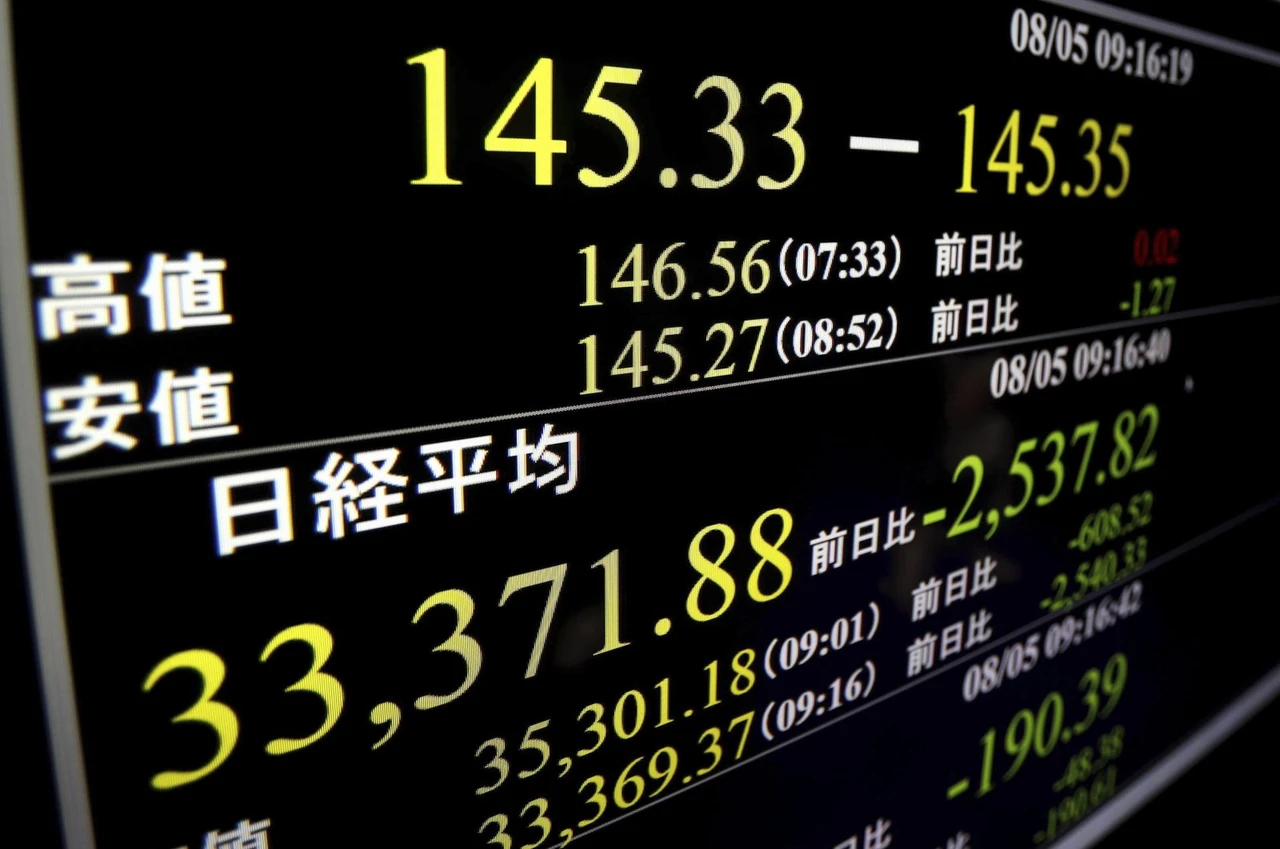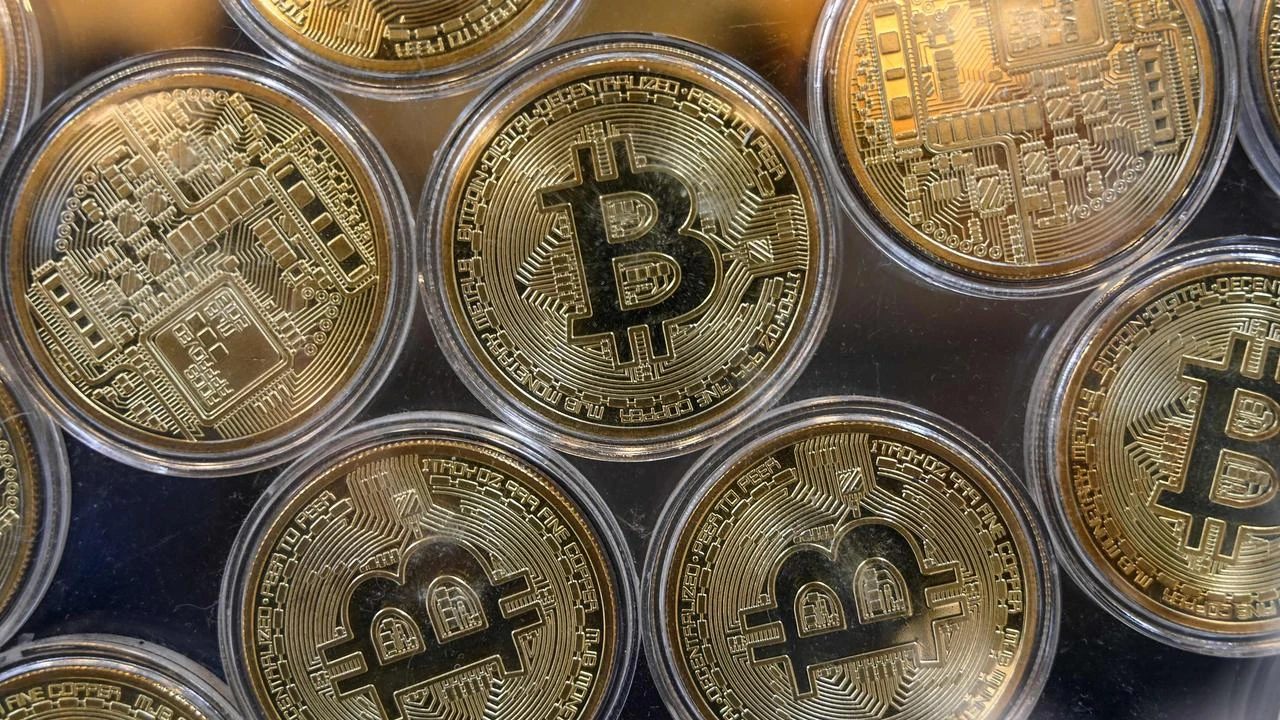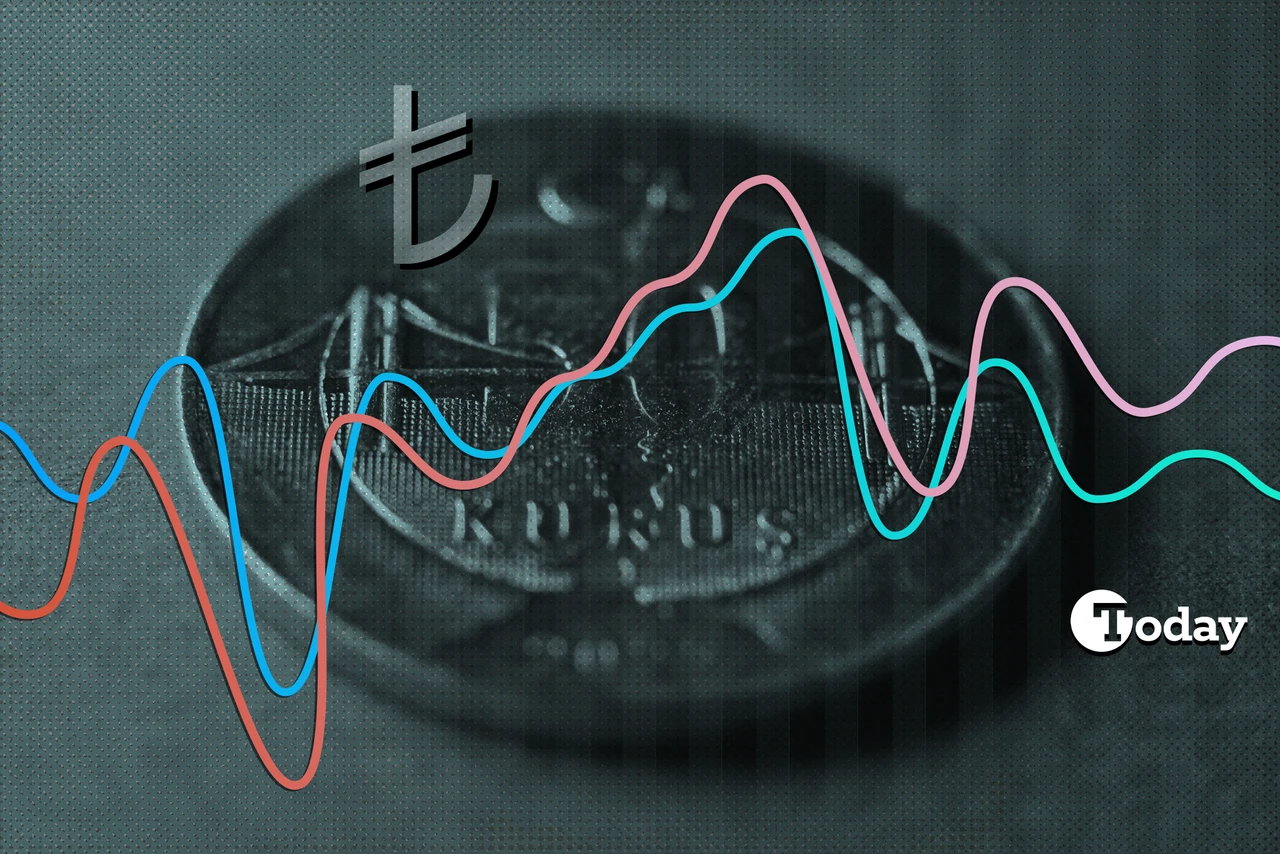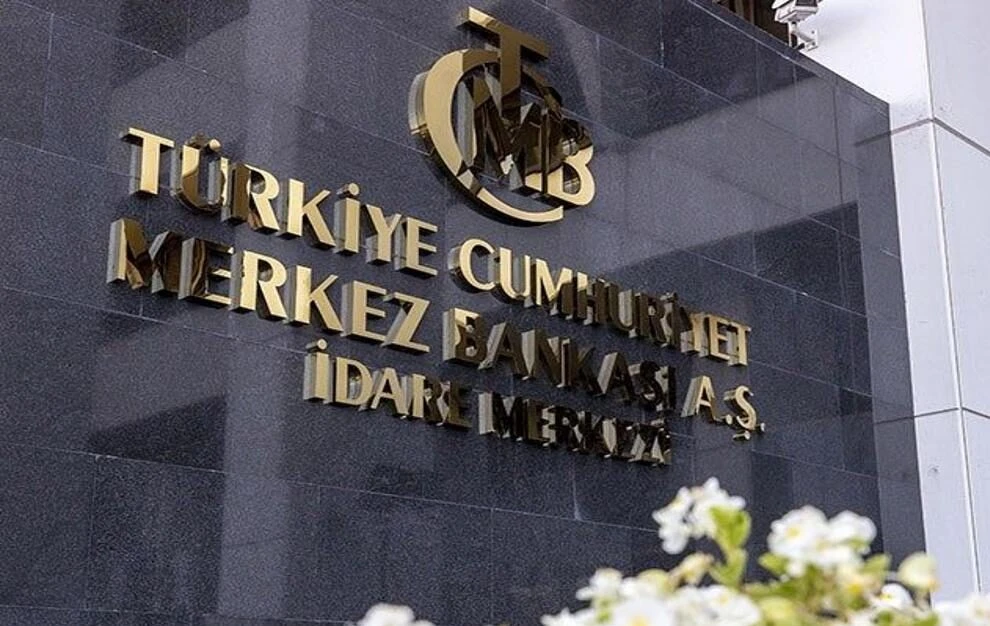Senior Turkish banker points to regional turmoil, Chinese bank failures for market plunge
 A monitor shows the Nikkei 225 stock index in Tokyo, Japan, Aug. 5, 2024. (AP Photo)
A monitor shows the Nikkei 225 stock index in Tokyo, Japan, Aug. 5, 2024. (AP Photo)
Rising recession fears are sending shockwaves through the global market, and the Turkish banking sector is bracing for the inevitable fallout.
Context: The Federal Reserve’s recent interest rate announcements have not alleviated these concerns, driven by disappointing economic data from the United States, leading to widespread market selloffs.
What experts are saying
In a recent interview with Türkiye Today, a senior Turkish banking official shared insights into the ongoing financial turmoil, highlighting specific concerns in Asia, particularly China.
My view is that there is a potential for expansion of the situation, including Lebanon, and there are problems specifically in China that are causing banks to fail
The senior Turkish banking official
These insights reflect the broader concerns about the global economic landscape and its potential impact on Türkiye’s financial sector.
Borsa Istanbul: Local market impact
The U.S. economic data, particularly the non-farm payroll report, has heightened fears of delayed interest rate adjustments by the Federal Reserve, impacting global economic stability.
The shockwaves from the U.S. market have reached Türkiye, where Borsa Istanbul faced significant volatility
- BIST 100 Index: Opened with a 6.72% decline, highlighting investor anxiety and global economic challenges.
- Sector performance: The banking sector experienced a substantial decline of 7.79%, with the holding index down by 5.97%.
- Circuit breaker activation: In response to the dramatic drop, Borsa Istanbul activated its circuit breaker system, halting trading temporarily to curb panic-induced losses.
Zoom in: Local economic indicators
- Turkish market reaction: In Türkiye, the BIST 100 index closed at 10,473.47 points on Friday, with a 3.01% decline.
- Currency fluctuations: The dollar/Turkish lira rate closed with a 0.3% increase at 33.2052 and opened at 33.2840 in the interbank market.
Zoom out: Current state of global markets
- U.S. Economic Data: Last week’s U.S. non-farm payroll data fell short of expectations, increasing fears of a potential recession. Non-farm employment grew by just 114,000, significantly below forecasts, while the unemployment rate rose to 4.3%, the highest since October 2021.
- Federal Reserve’s response: Despite signals of a potential interest rate cut in September, the Fed’s response to recession fears remains uncertain. Chicago Fed President Austan Goolsbee emphasized a cautious approach, noting that more data would be needed before making policy decisions.
- Global market reaction: The U.S. economy’s uncertainty has reverberated across global markets. The New York Stock Exchange saw significant declines, with the Nasdaq falling 2.45%, the S&P 500 down 1.84%, and the Dow Jones dropping 1.51%.
Europe’s market struggles
European markets mirrored the U.S. downturn, with significant losses across major indices:
- FTSE 100: Declined by 1.31%
- CAC 40: Fell by 1.61%
- DAX 40: Dropped by 2.33%
- MIB 30: Decreased by 2.55%
Analysts noted that economic indicators and signals of recession fears in both the U.S. and Europe have intensified risk perceptions among investors.
Currency fluctuations
- Safe-haven assets: The demand for safe-haven assets, such as U.S. Treasury bonds, increased. The 10-year Treasury yield dropped to 3.72%, the lowest since June 2023, and later stabilized at 3.73%.
- Currency markets: The dollar index fell to 102.9, while gold prices decreased by 0.3% to $2,435 per ounce.
- Cryptocurrency market: Bitcoin experienced a sharp decline, losing over 10% of its value and falling to $52,900.
Asian markets: Mixed response
- Nikkei 225: Japan’s Nikkei 225 index experienced a historic drop of 12.6%, the most significant single-day loss since the 1987 Black Monday.
- Kospi and Hang Seng: South Korea’s Kospi fell by 9.4%, while Hong Kong’s Hang Seng index decreased by 0.2%.
- Shanghai Composite: In contrast, China’s Shanghai Composite index rose by 0.1%, buoyed by better-than-expected PMI data.
What is next
As markets continue to navigate uncertainty, the following economic indicators will be closely monitored:
- Turkish inflation data: The July Consumer Price Index (CPI) and Domestic Producer Price Index (PPI) will be released today.
- Global economic reports: Key economic indicators, including the Eurozone’s PMI and Producer Price Index (PPI), as well as the U.S. ISM Services PMI, will provide further insights into the economic landscape.



